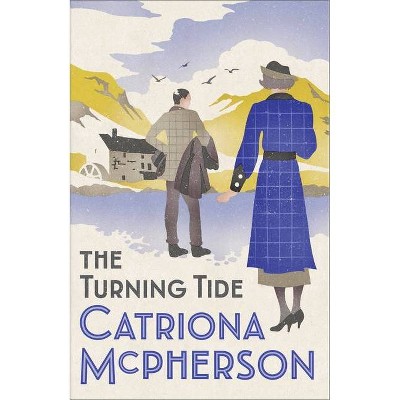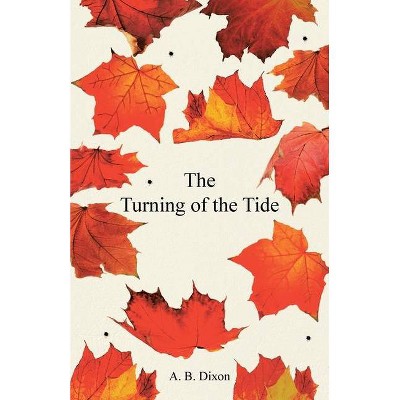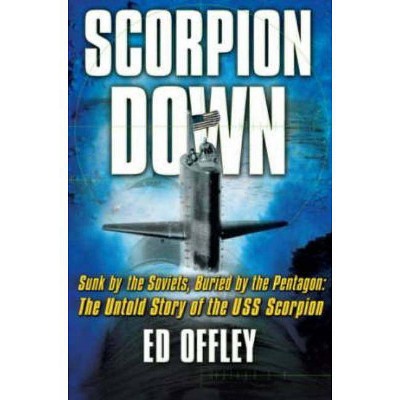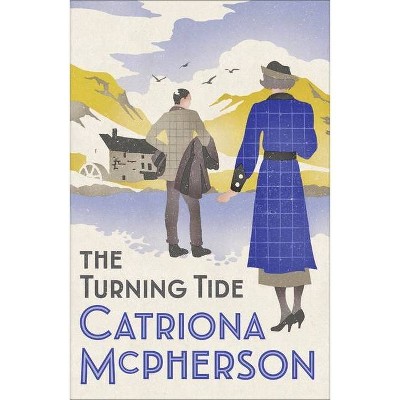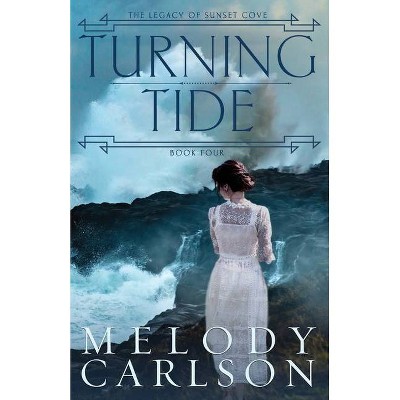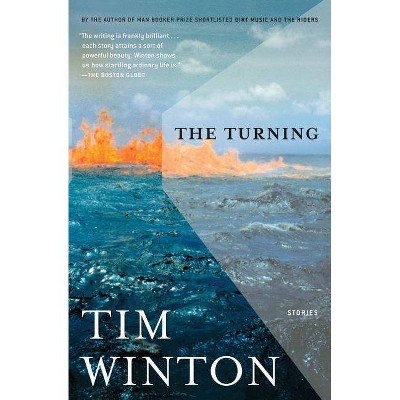Turning the Tide - by Ed Offley (Paperback)
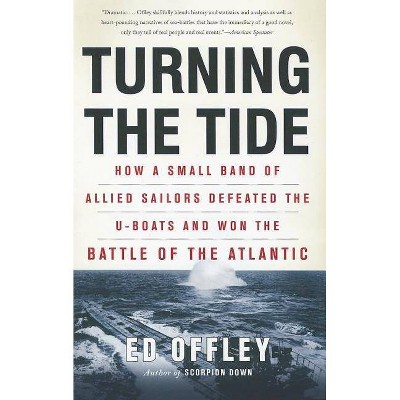
Similar Products
Products of same category from the store
AllProduct info
<p/><br></br><p><b> About the Book </b></p></br></br>"Offley skillfully blends history and statistics and analysis as well as heart-pounding narratives of sea-battles that have the immediacy of a good novel, only they tell of real people and real events.""--The American Spectator"<p/><br></br><p><b> Book Synopsis </b></p></br></br>At times, even his admirers seemed unsure of what to do with General Douglas MacArthur. Imperious, headstrong, and vain, MacArthur matched an undeniable military genius with a massive ego and a rebellious streak that often seemed to destine him for the dustbin of history. Yet despite his flaws, MacArthur is remembered as a brilliant commander whose combined-arms operation in the Pacific -- the first in the history of warfare -- secured America's triumph in World War II and changed the course of history. <p/> In <i>The Most Dangerous Man in America</i>, celebrated historian Mark Perry examines how this paradox of a man overcame personal and professional challenges to lead his countrymen in their darkest hour. As Perry shows, Franklin Roosevelt and a handful of MacArthur's subordinates made this feat possible, taming MacArthur, making him useful, and finally making him victorious. A gripping, authoritative biography of the Pacific Theater's most celebrated and misunderstood commander, <i>The Most Dangerous Man in America</i> reveals the secrets of Douglas MacArthur's success -- and the incredible efforts of the men who made it possible.<p/><br></br><p><b> Review Quotes </b></p></br></br><br><b><i>Panama City News Herald</i></b><br>"Ed Offley's new book <i>Turning the Tide</i> is a story few know in the history of World War II. The cat-and-mouse tale played out in the book in dark seas, during treacherous storms has first-hand accounts told by those [who] saw the battles up close and personal with real life-and-death consequences." <p/><b><i>Virginian-Pilot</i></b><br>"[A]s Ed Offley shows in this detailed and compelling book, a combination of technology and tactics enabled the Allies to turn the tide in the longest and most deadly naval battles ever fought.... He brings his naval expertise to bear in describing each side's actions and perspectives during those pivotal encounters. Moreover, he does a masterful job of detailing the horrors of battle as brave men fought each other with fire and steel and also fought the ferocious and frigid waves in which many of them drowned." <p/><b><i>Virginia Gazette</i></b><br>"[An] excellent new book.... Offley describes in clear and wonderful detail how the Allies did it.... [His] writing is superb, and his research in the text and in the appendices are clear and to the point."<br><br><b><i>Philadelphia Inquirer</i></b><br>"When we think of World War II, we tend to think of two theaters of war: the European continent and North Africa, and the Pacific.... Far less attention has been paid to a third theater, the brutally cold, gale-slashed North Atlantic, where the British and American navies struggled against German U-boats to protect the supply lifeline that made the eventual Allied victory in Europe possible. Ed Offley's well researched, tautly written account does its part to even the scales." <p/><b><i>Washington Times</i></b><br>"Ed Offley presents us with masterly military writing.... Offley, in careful detail that shows his knowledge of the subject, tells how Allied strategists and tacticians devised ways of leveling the playing field." <p/><b><i>Florida Times-Union</i></b><br>"Offley's story...has all the guts and glory of the best World War II novels. Here, the heroes are real in this most important battle.... From the admirals to the ordinary seamen, Offley gives us the whole story, but he also manages to capture the intimate danger of pushing a small ship through treacherous seas while someone is shooting at you."<br><br><b><i>Publishers Weekly</i></b><br>"The author focuses on individual combatants, from the lowest ranks to the highest, emphasizing the human elements and making for an extremely readable text that should appeal to neophytes as well as professionals." <p/><b><i>Library Journal</i></b><br>"This is an account of the crucial convoy battles of March to May 1943 that saw Allied naval escorts and air power finally subdue the deadly Kriegsmarine subs. Offley...shows how the battle was very much a mind game, each side trying to outfox the other. The author's emphasis is on the harrowing experiences of the men on both sides." <p/><b><i>Booklist</i></b><br>"This sound, readable WWII naval history focuses on a crucial period of the Battle of the Atlantic, one Offley argues was the turning point in the campaign.... Equally strong in writing, research, and backgrounding, this is a fine addition to material on the epic Battle of the Atlantic." <p/><b><i>Navy News</i> (London)</b><br>"<i>Turning the Tide</i>...is good narrative history which gives the reader a flavour of what it was like to fight in the Battle of the Atlantic at its climax. It was a struggle of unremitting strain and terror for friend and foe alike."<br><br><b><i>The American Spectator</i></b><br>"<i>Turning the Tide</i> is a dramatic contribution to understanding of a long-running and geographically huge confrontation that may have mattered more to the outcome of World War II than more commented-on campaigns.... As important and engaging as the sweep and generalities of the largest naval campaign in history are, the bulk of this book, and Offley's signal contribution, is his first-hand, blow-by-blow descriptions of some of the deadliest and most game-changing encounters of the Atlantic war.... Offley skillfully blends history and statistics and analysis as well as heart-pounding narratives of sea-battles that have the immediacy of a good novel, only they tell of real people and real events. <i>Turning the Tide</i>...belongs on the bookshelves of professional historians or of general readers attempting to understand a central campaign in the most horrific war in human history." <p/><b><i>Proceedings</i></b><br>"[A] thorough and scrupulous operational history.... <i>Turning the Tide</i> ably sketches in the background and then sends the reader out on board two convoys in March 1943.... Offley recounts the struggle of ONS5 meticulously. We follow each merchant vessel and each U-boat and understand what they are up to; but we also get a sense of what it must have been like for the submariner in his dank little world and the watchman on his sleet-flailed bridge.... [A] valuable book."<br><br><b>Carl LaVO, author of <i>Back from the Deep</i>, <i>Slade Cutter</i>, and <i>The Galloping Ghost</i></b><br>"Long before there was D-Day, there was D-Day in the North Atlantic Ocean for England. In <i>Turning the Tide</i>, Ed Offley delivers the definitive bible of how the Allies in March and May of 1943 turned defeat into victory against an armada of German U-boats determined to strangle resupply lines to England. The book delivers high suspense on the storm-tossed North Atlantic by taking readers inside the U-boats and the Allied convoys as well as American, English and German high commands racing for technological advantage at sea. In the end, Offley's masterful account not only probes what gave each side an edge but reveals the bravado it took for a rather small group of Allied and German sailors to fight to the death in one of history's great naval struggles."<br><br><b>Marc Milner, University of New Brunswick, author of <i>North Atlantic Run</i> and <i>The Battle of the Atlantic</i></b><br>"Offley tackles a complex and difficult campaign spanning months across a vast ocean and involving a myriad of actors, and turns it into a compelling piece of writing. In a field where the outcomes of battles are often treated as mere statistics--of tonnages sunk or shipping safely escorted--or as evidence of the impact of technology, Offley's Atlantic tale is full of people wrestling with the sea, the enemy and their fate. In the end, <i>Turning the Tide</i> captures the human dimension of the crisis of the Atlantic War in the spring of 1943 in a way no one has for nearly forty years. And it is a welcome reminder that the Atlantic war lay at the heart of Allied victory in World War II." <p/><b><i>Kirkus</i></b><br>"Offley meticulously re-creates the terrifying U-boat assaults during this pivotal spring...and explains how the Allies turned the tide of the years-long battle.... An intensely focused account that cuts through the battle's sprawl and duration, supplying the general reader with an appreciation of its character and importance."<br><br><b>Sherry Sontag, co-author <i>Blind Man's Bluff</i></b><br>"Through the eyes of their prey, Ed Offley tells the constant terror of German hunter-killer wolf packs going after ships and their military escorts. To win, the allies needed just to survive, to carry desperately needed supplies to Europe. The miracle is these ships do far more. They turn the tide and pummel their tormentors in a moment of history that makes one hell of a story." <p/><b>David Poyer, author of <i>Ghosting</i> and <i>The Crisis</i></b><br>"What's left to add to the oft-told tale of the Battle of the Atlantic? Ed Offley manages to invest the story of the convoys with renewed drama. Buttressed with statistics and details of tactics and ordnance, <i>Turning the Tide</i> is worth a place on the shelf with the best maritime nonfiction." <p/><b>Michael Gannon, author of <i>Operation Drumbeat</i> and <i>Black May</i></b><br>"In this volume the author has selected a series of stories that both explicate and dramatize the most fateful months of the Allied-German battle for control of the North Atlantic in World War II. I am confident that the reader will find, as I did, his stories to be both engagingly written and compelling in effect."<br><p/><br></br><p><b> About the Author </b></p></br></br><b>Ed Offley</b> is a seasoned military reporter and the author of <i>Scorpion Down</i> and <i>Turning the Tide</i>. He lives in Panama City Beach, Florida.
Price History
Price Archive shows prices from various stores, lets you see history and find the cheapest. There is no actual sale on the website. For all support, inquiry and suggestion messages communication@pricearchive.us
